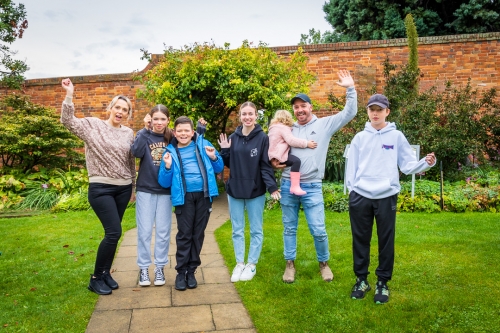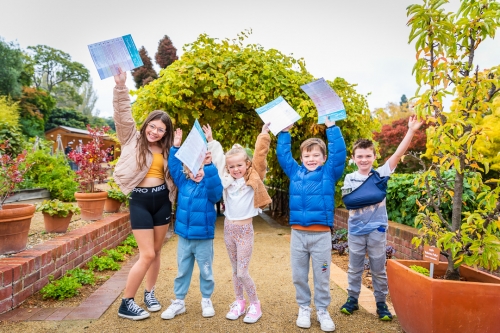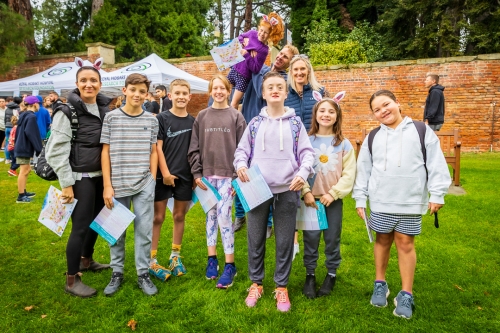As we observe World Day for Grandparents and the Elderly on July 28, it's a fitting time to recognise our older population's vital role in our communities and the importance of supporting their health and well-being. The Royal Hobart Hospital Research Foundation is deeply committed to this cause, with one of our key strategic goals focusing on "Aging Well." Here, we highlight some of the groundbreaking research we've funded to improve the lives of older Tasmanians.
Advancing trauma care for older adults
Thanks to the Foundation's generous support and its donors, the "Older Trauma Under Triage Study" (OTUTS) led by Dr. Adam Mahoney has made significant strides in improving trauma care for elderly patients. This project evaluated the effectiveness of an Older Trauma Screening Tool at the Royal Hobart Hospital, aiming to reduce the under-triage rates of older trauma patients.
Dr. Mahoney's research found that older trauma patients were often under-triaged, leading to more extended emergency department stays and increased complications. By implementing a new trauma call system and developing a tailored screening tool, the study set the stage for better triage and treatment protocols, ultimately enhancing outcomes for older patients.
Reducing medication risks in hospitalised older adults
Dr. Mohammed Salahudeen's project focused on reducing the use of anticholinergic drugs, which can pose significant risks to older adults, including increased hospital admissions, falls, and dementia. This innovative study designed and implemented an intervention to lessen the use of these drugs in hospitalised older adults.
The project significantly reduced the burden of prescribing anticholinergic drugs and improved medication safety for older patients at the Royal Hobart Hospital. The success of this intervention paves the way for ongoing improvements in medication management, ultimately benefiting the health and well-being of elderly Tasmanians.
Integrated care for older surgical patients
Professor Richard Turner's project aimed to improve care for older patients undergoing emergency surgery by integrating General Medicine and General Surgery services. Recognising the high risk of complications, and the need for coordinated care, this project evaluated the impact of a new model of care at the Royal Hobart Hospital.
The study found that proactive medical input significantly reduced in-hospital complications and improved functional recovery for older patients. By providing comprehensive and coordinated care, the project enhanced patient outcomes and demonstrated potential cost savings for the healthcare system.
These projects highlight the Foundation's dedication to advancing research that directly benefits our aging population. As we celebrate World Day for Grandparents and the Elderly, we are reminded of the importance of investing in research that supports the health and well-being of our elders.
Join us in our mission to improve the lives of older Tasmanians. Your support can lead to innovative solutions and provide hope for our elderly community. To contribute to our groundbreaking research, contact the Foundation's office at (03) 6166 1319 or donate online.
In the heart of Tasmania, extraordinary tales of survival and scientific innovation remind us of the power of hope and the importance of advancing medical research.
Today I'm reaching out to share with you a story of incredible courage and a groundbreaking study that promises to transform stroke care and recovery for individuals like James Mackey.
James, a vibrant and active Tasmanian, suffered a severe haemorrhagic stroke at the age of 29. His sudden affliction and the harrowing journey that followed highlights a stark reality: a stroke can strike anyone, anytime, with life-altering consequences.
James was diagnosed with a severe haemorrhagic stroke—an unexpected bleed within his brain that left doctors scrambling to save his life. The prognosis was grim, and as James lay in an induced coma in the ICU for three weeks, his family faced the harrowing possibility of losing him forever.
Thanks to swift medical intervention and the relentless spirit of James and his loved ones, he embarked on a remarkable recovery journey, overcoming immense odds to regain aspects of his independence.
James's story is not just one of survival; it's a beacon of hope and a testament to the urgent need for innovative stroke research and care.
The sad reality is, Tasmania faces a unique challenge, sharing the highest incidence of stroke per capita in Australia. This unfortunate distinction means our community also leads in navigating the long road of stroke recovery.
The need for local, groundbreaking research has never been more critical.
It underscores our collective responsibility to support initiatives that promise better outcomes for our fellow Tasmanians confronted with this daunting journey.
The Royal Hobart Hospital Research Foundation is at the forefront of such innovation. We are excited to fund and support a pioneering study focusing on continuous blood pressure monitoring in severe acute stroke patients.
This research, led by Ms. Felicity Charlier and under the guidance of Professor Prue Morgan from Monash University, aims to uncover critical insights into how blood pressure fluctuations during early post stroke therapy, which includes mobilisation activities like rolling, sitting and standing, affect recovery outcomes.
With the potential to better understand stroke rehabilitation, the study leverages a novel Monash Engineering continuous blood pressure prototype device, with the future aim to guide clinical practices towards enhancing functional recovery in severe stroke patients.
Imagine the impact of this research on patients like James and countless others across Tasmania and beyond.
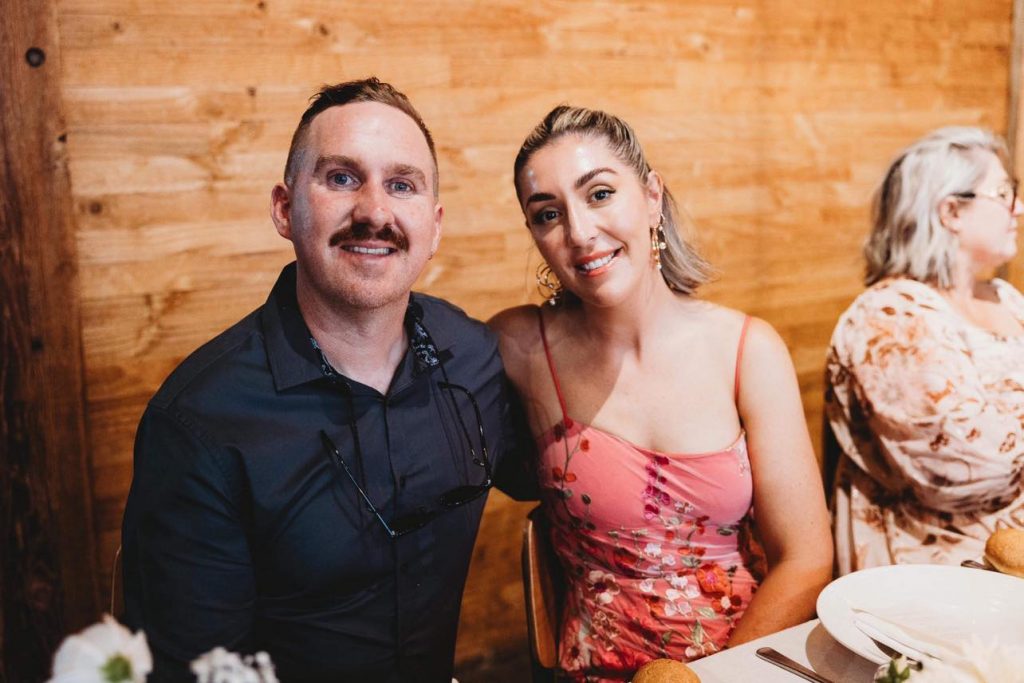
By identifying optimal mobilisation strategies, we can improve recovery trajectories, reduce the incidence of secondary complications, and elevate the quality of life for severe stroke survivors.
Your support can directly contribute to the success of this vital study and the development of new therapeutic approaches that will benefit individuals grappling with the aftermath of a stroke.
The journey ahead is filled with promise, but we need your help to make it a reality.
Your generous donation to the Royal Hobart Hospital Research Foundation this tax time will enable us to continue funding essential research like Ms Charlier's study, bringing hope and tangible improvements to stroke care and recovery.
Please consider donating to the Royal Hobart Hospital Research Foundation before June 30.
Together, we can harness the power of medical research to create a future where stories like James's are not only about survival but about thriving after a stroke.
Your support does more than fund research; it elevates the wellbeing of Tasmanians dealing with these health issues, enhancing the quality of life across our community.
Thank you for your continued support and generosity.
Warmest regards,
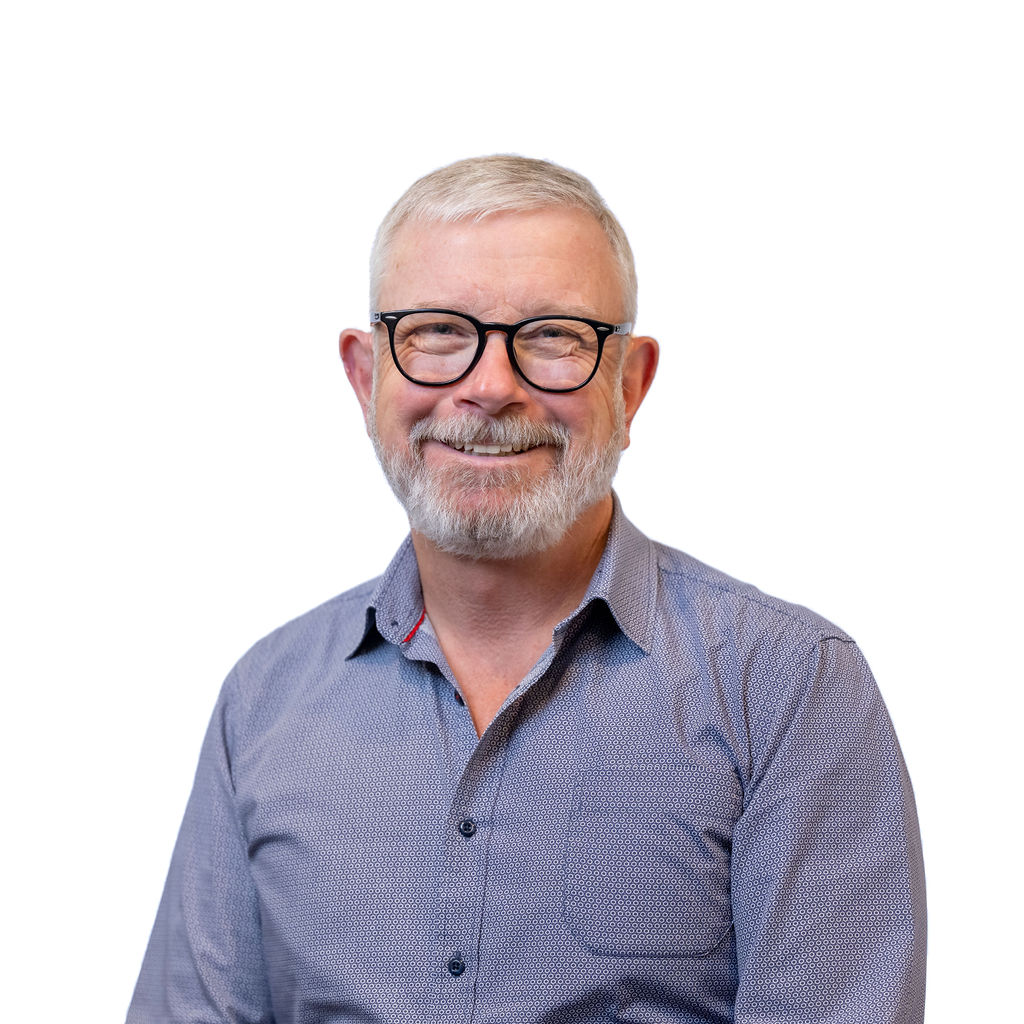
John Stubley
Interim Chief Executive Officer
Royal Hobart Hospital Research Foundation
P.S. The urgency to advance stroke research and care has never been greater. Can you join us in this critical mission with a tax-deductible donation today? Let's work together to save lives and transform the future of stroke recovery.
The Royal Hobart Hospital Research Foundation's Research Matters speaker series returned on Wednesday, 15 May 2024 to spotlight kidney health during Kidney Health Week. Local specialists Dr Mathew Wallis, psychologist Carolyn Baker, and nurse practitioner Lisa Shelverton joined our expert panel to lead a dynamic seminar to a room full of Foundation supporters keen to find out more about the latest advancements in kidney disease.
In a focused session, the panel covered the latest kidney research, innovative prevention strategies, and advanced treatments emerging in Tasmania. Their discussion aimed to educate on supporting those with chronic kidney disease, emphasising new lifesaving advancements.
The speakers provided essential insights on recognising kidney disease symptoms, understanding its progression, and the latest therapeutic approaches to enhance patient outcomes. This informative seminar underscored the significant local contributions to kidney health, equipping attendees with the knowledge to make impactful changes.
We thank St Lukes for their continued support of the Research Matters series and for providing a perfect setting at their new Wellness Hub.
If you enjoyed this Research Matters seminar, don't miss out on our future events! Secure your spot for our upcoming Research Matters - Pain Week event on 24 July 2024.
Are you just discovering our Research Matters speaker series? Check out our other talks on dementia, prostate cancer, and heart health.
I am delighted to be introducing myself to you all – I’m John Stubley and I will be joining the Foundation as Interim CEO, while Steph Furler is on maternity leave.
Over the past few years, I’ve held leadership roles at Hobart City Mission and Optia Disability Services. These were rich and rewarding roles thanks to the incredible support of people within our community who helped us transform lives.
My experience has shown me that Tasmanians are some of the most compassionate and caring people, who are always happy to chip in to help others. As I join the Foundation, I can already see that our community of supporters are just as giving and are really committed to improving the health of others.
I look forward to meeting many of you at our upcoming events, which are listed on the back page, and to hear your inspiring stories. Together, I know that we will continue championing groundbreaking research projects that make real differences in people's lives.
Please don’t hesitate to reach out anytime if you would like to chat. I can be reached on 03 6166 1319 or at john.stubley@ths.tas.gov.au.
Warm regards
John Stubley
Are you ready for an incredible challenge? The Royal Hobart Hospital Research Foundation has an exhilarating opportunity for you! The Foundation is thrilled to announce that it is the charity partner for the 2024 Cadbury Marathon and we’re inviting you to join in the fun.
The Cadbury Marathon is held on 7 January 2024 in Hobart and offers a range of running events to suit everyone’s fitness levels, from 1km to full marathons, so anyone can take part.
Here’s how to get started:
Sign up: Click here to register for the 2024 Cadbury Marathon
Fundraise: Create a fundraising page and share it with your networks to support your efforts
Train and prepare: Start your training journey and get ready to make a difference
Impact: Every step you take gets us closer to our goal of improving the health and wellbeing of Tasmanians
So, get ready to lace up those runners and set yourself a new challenge for 2024.
If you would like tips on how to fundraise while you run, please reach out to the Foundation team on research@rhhresearchfoundation.org.
We look forward to seeing you on race day!
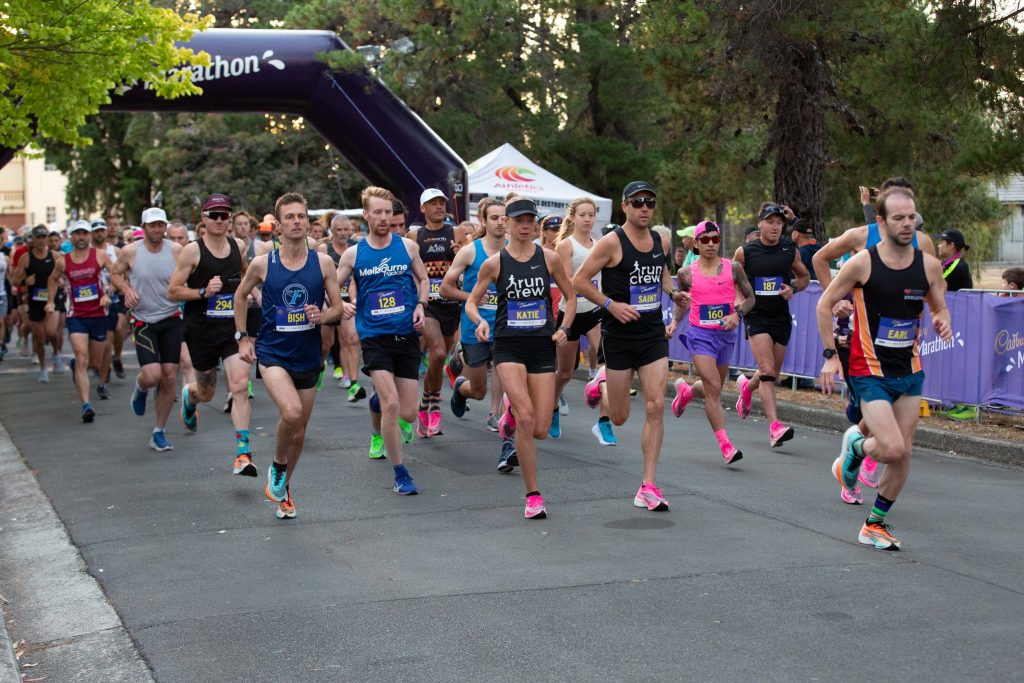
For years, the Royal Hobart Hospital Research Foundation has been dedicated to improving the health and wellbeing of our community by funding innovative medical research. Thanks to the generosity of our community, we have been able to make incredible strides towards a brighter and healthier future for local Tasmanians.
It was through this generosity that a Tasmanian doctor was able to pioneer a less invasive way to treat premature babies with breathing problems. In 2012, the Foundation provided funding for Professor Peter Dargaville and his team at the RHH Neonatal Intensive Care Unit to develop this novel procedure, using a catheter instead of inserting a breathing tube, to treat newborns in respiratory distress. Now known as the Hobart Method, it has since changed the lives of thousands of the most vulnerable babies around the world.
Twins Emmy and Mila, who were born 10 weeks early, had their lives saved by this revolutionary treatment. Looking at them now you couldn’t tell them apart from any other nine year old!
The twins' mum Lauren said that “It was an easy choice to opt for the Hobart Method as opposed to the more invasive alternative.”
She explained that the traditional method would have “required intubation, which is a tricky procedure in itself, and carries risks of pneumonia, as well as possible damage to the lungs and vocal cords.”
The revolutionary and less invasive Hobart Method “left no short-term damage and we’ve seen no long-term issues in the girls,” a delighted Lauren explained.
The Royal Hobart Hospital Research Foundation urgently needs your help to keep funding ground-breaking research to change the lives of local Tasmanians like Emmy and Mila.
Your gift to the Foundation will allow us to develop new treatments and cures for heart and lung conditions in premature babies, cancer, cardiac disease, dementia, and other conditions that impact our local community. Your support will be vital to improving the quality of life for Tasmanians living with a variety of health conditions.
So, this tax time, please donate to the Royal Hobart Hospital Research Foundation and allow us to keep funding innovative research right here in Tasmania. Your local gift can truly make a difference and help save lives.
P.S. The Royal Hobart Hospital Research Foundation needs your help, now more than ever, to fund medical research that directly benefits the health and wellbeing of Tasmanians. Can you make a tax deductible donation today to help save lives?
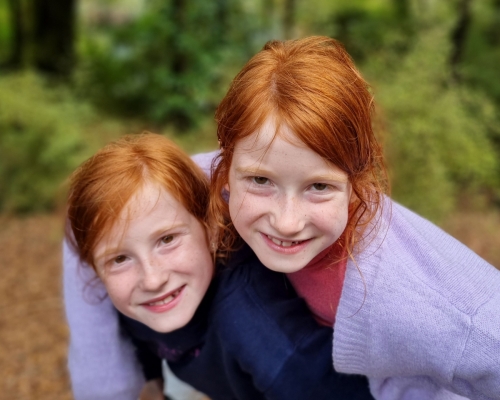
On Friday 7 April over 2000, people descended on Hobart’s Royal Tasmanian Botanical Gardens to take part in the Royal Hobart Hospital Research Foundation’s 11th annual Easter Egg Hunt. Despite a slightly gloomy forecast families eagerly flocked to the gardens early to make the most of their Good Friday.
Enthusiasm wasn’t in short supply as children deciphered the clues that led them on a quest throughout the gardens until they stumbled upon a hoard of chocolate Easter Eggs. The children were greeted with appearances by Freddo Frog, Caramello Koala, and even the Easter Bunny!
Special thanks to the incredible partners and sponsors that helped make this event possible - Chemist Warehouse, Optus, Pulse Hobart, and the Spirit of Tasmania.
We are delighted to announce that the event raised over $30,000 for local medical research which means that the Foundation will be able to fund three more incubator grants in 2024. This is a phenomenal effort and something that the Foundation couldn’t have achieved without the support of the Hobart community!
Congratulations to the following people who won prizes in the Foundation’s raffle and ‘guess the quantity’ competitions on the day. Prize winners have been contacted directly.
We look forward to seeing you all again next year!
